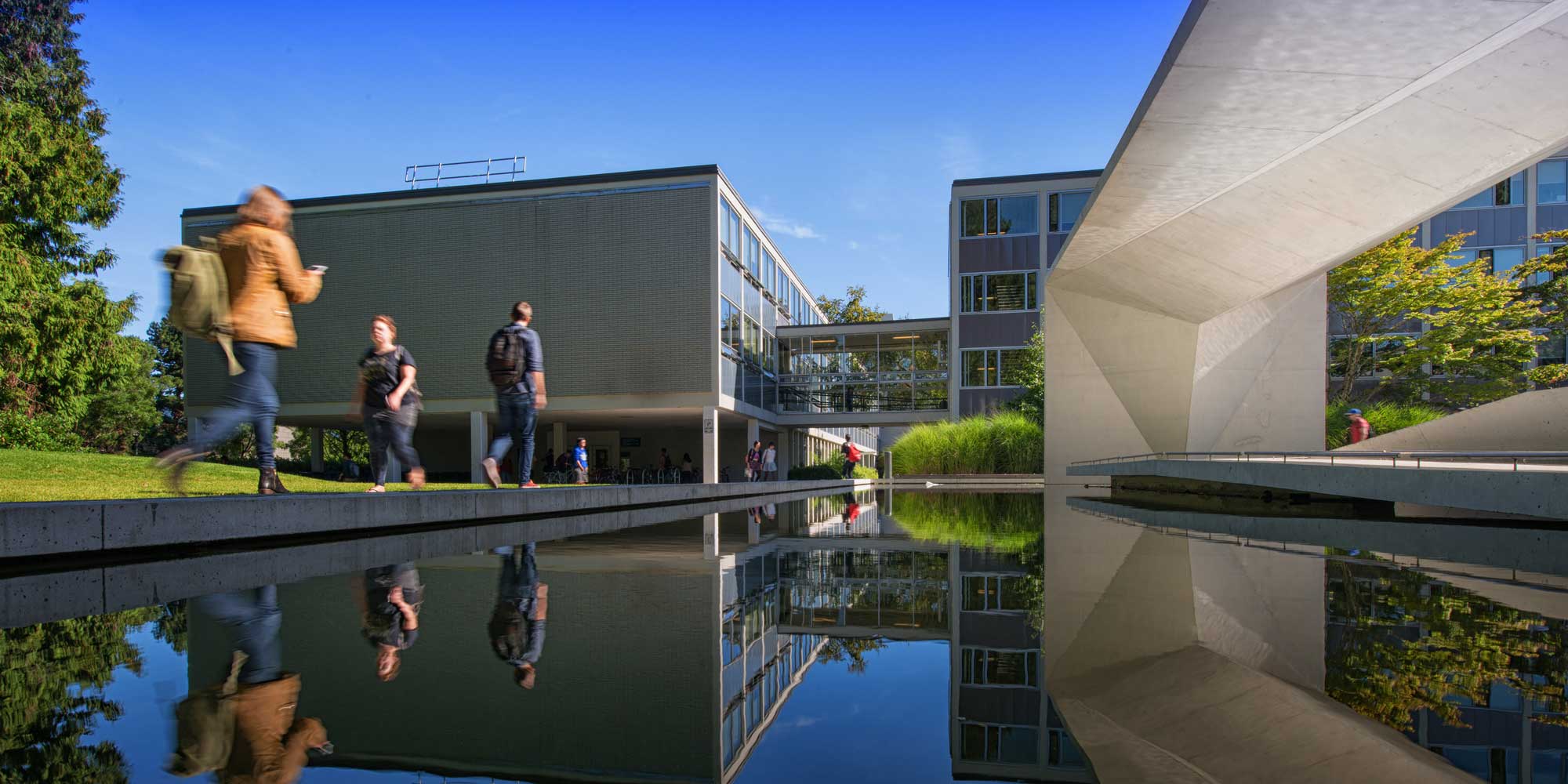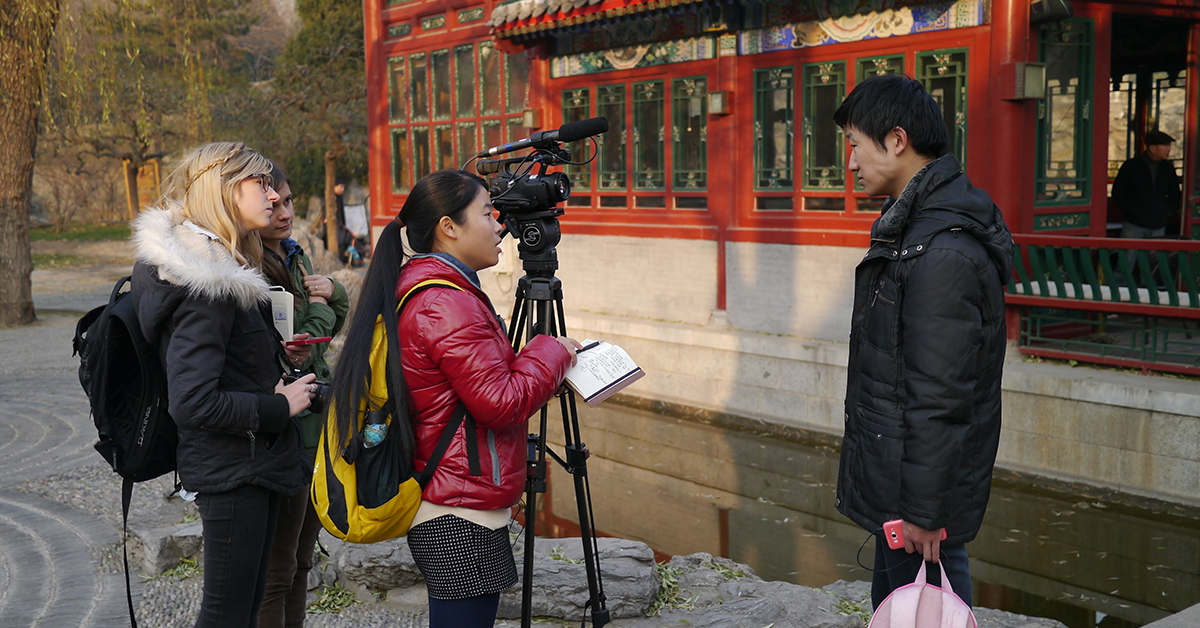

As an Arts student, you are developing the skills and knowledge to make a difference in your community. The Centre for Community Engaged Learning offers students opportunities to learn, collaborate, and apply in-class learnings to solve complex social issues beyond UBC.
If you are looking for ways to apply your degree to effect positive social change, consider enrolling for a course with a community engaged learning component next term. The Faculty of Arts offers several courses that connect students with community-based experiences. Even throughout the pandemic, UBC students have collaborated virtually on projects with Heritage Vancouver, the Village Vancouver Transition Society, the Powell Street Festival Society, and more!
We spoke to three UBC students who participated in courses with community engaged learning components in 2020, Jacqueline, Jeevan, and Sophie, to learn more about their specific projects, what impact they hope to see in the community, and why other Arts students should be taking these courses.
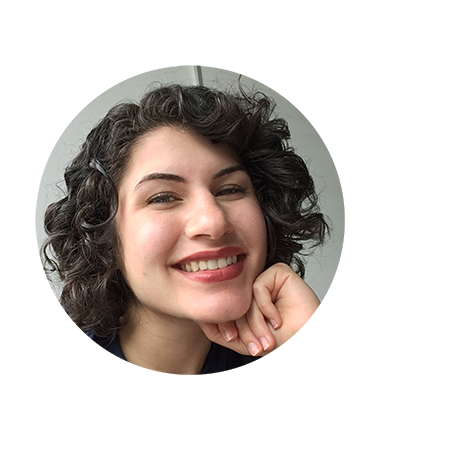

Jacqueline Seppelt (she/her/hers), fifth-year Sociology major
In Sociological Methods: Historical Research (SOCI 383), students are introduced to key questions, concepts, approaches, and debates within the field of historical research methods in Sociology. While taking the course last fall, Jacqueline collaborated with Heritage Vancouver to better understand the impact of Little Sister’s Book and Art Emporium on Vancouver’s LGBTQ+ community.
“I had a responsibility to tell an accurate story that used and empowered voices from [the LGBTQ+] population.”
Q: Can you tell us about the project you worked on?
I worked with Heritage Vancouver on a project recognizing the heritage of Little Sister’s Book and Art Emporium’s original location, 1221 Thurlow Street. My part of the project focused on researching the historical and social context of the bookstore, specifically the HIV/AIDS Crisis in North America and Vancouver, and hate crimes against LGBTQ+ people in Vancouver. The final project, an online exhibition, short documentary, and teaching tool will teach people about the impact the bookstore had on the LGBTQ+ population in Vancouver by highlighting the voices of community members.
Q: What did you learn from this experience?
I learned a lot about conducting historical research and its ethical implications. I had a responsibility to tell an accurate story that used and empowered voices from this marginalized population. Through the project, I have become more mindful about the stories told in publications today and whether they reflect the truth.
Q: What was it like participating in this project online?
This project taught me that archival research can be done online. Although the digitized archive does not always include every source you may be looking for, there are lots of great resources on the internet. Special mentions to the B.C. Gay and Lesbian Archives and the AIDS Activist History Project, for those who are interested!
Q: Why do you think other Arts students should participate in this opportunity?
Although this course seems very specific, it includes a lot of important content about why history matters and how history is created. The community engaged learning component gave me a chance to apply the course content to a project as I was learning it. I would recommend this course to anyone looking to gain archival research experience or learn more about the making of history.
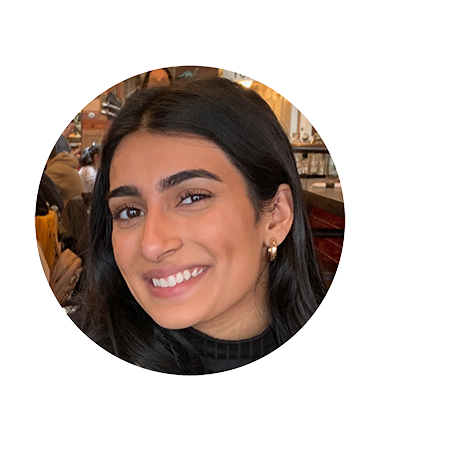

Jeevan Sangha (she/her/hers), fourth-year Sociology major
As a fieldwork-based course, the Urban Ethnographic Field School (SOCI 480/ANTH 480) trains students to conduct in-depth, community-based research concerned with the social, political, cultural and economic lives of urban Vancouver residents. Last summer, Jeevan partnered with the Village Vancouver Transition Society to distribute seed packets to communities facing heightened food insecurity during the pandemic.
“The course was a way for us to witness the resilience of community partners and grassroots organizations during unprecedented times. We worked with the organizations towards the beginning of the pandemic, and watched them readjust at every turn to provide support to their communities while also keeping them safe.”
Q: Can you tell us about the project you worked on?
During my time in the Urban Ethnographic Field School (UEFS), I worked with the Village Vancouver Transition Society and folded seed packets for distribution to rural areas and local seed libraries. Due to the pandemic, many rural areas have experienced heightened food insecurity and have found it much more difficult to access the seeds they need to support their own sustainable local food systems. As students, we were able to help the organization distribute seeds to these areas, which helped communities be self-sufficient in their food production.
Q: Did you learn any new skills that you can transfer to your life or future career?
In our project group, we were responsible for communicating with our community partner, completing our community work within a six-week timeframe, and managing an intensive course load. UEFS was a crash course in time management, communication and professionalism which is valuable in any workplace.
Q: Why do you think other Arts students should participate in this opportunity?
UEFS is a great way to push yourself out of your comfort zone. In Sociology, it’s easy to get caught up with theory and forget how academic concepts apply on the ground-level. Prior to UEFS, I hadn’t studied sustainability or food security at all but by the end, I learned so much from the combined information of the course work and my interactions with our community partner. It was enriching to see how these concepts manifest in our own community at a micro-level and how there are people working to make change on their own terms. It’s inspiring, and an excellent way to grow as a student and an individual.
Q: What was it like participating in this project online?
Ultimately, the course was a way for us to witness the resilience of community partners and grassroots organizations during unprecedented times. We worked with the organizations towards the beginning of the pandemic, and watched them readjust at every turn to provide support to their communities while also keeping them safe. It also showed that there’s always something we can do to contribute to these movements. There’s always work to be done.
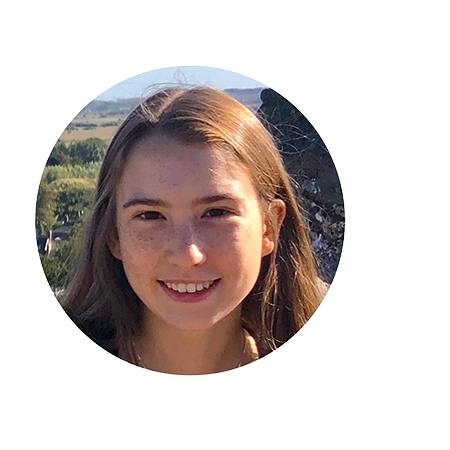

Sophie Carriere (she/her/hers), third-year Biochemistry student
In Dis/Orienting Asian Canada: Asian Canadian Histories for Our Times (ACAM 300), students explore how Asian Canadian histories are portrayed and used in a range of contexts today — from scholarship, textbooks, political apologies and media coverage, to films, museum exhibits, community festivals and family stories. Last fall, Sophie partnered with the Powell Street Festival Society to showcase the histories of marginalized communities in the Downtown Eastside.
“As someone who isn’t an Arts student, this course provided an opportunity to expand my knowledge and gain a different perspective. It was nice to explore a subject that I had very little experience in while simultaneously contributing to a larger project with an important purpose.”
Q: Can you tell us about the project you worked on?
I contributed to a collaborative mapping project for the Powell Street Festival Society. I researched three histories relevant to the Downtown Eastside community: the New Canadian newspaper, the Militant Mothers of Raymur, and the Strathcona Property Owners and Tenants Association’s resistance to urban renewal. Through the project, I helped to communicate less popular histories and showcased activism in marginalized communities.
Q: Did you learn any new skills that you can transfer to your life or future career?
I realized how much I enjoy exploring different histories and learning about the history of Vancouver in particular. I learned that community engagement comes in a variety of forms. I can see myself using the skills I have practiced, such as conducting research for an organization, to take part in similar projects in the future!
Q: What was it like participating in this project online?
Although I would have liked to experience this project in-person, completing it online demonstrated how people can still engage with their community — regardless of limitations on time or location. It is actually a lot easier to become involved in projects like this than I initially thought!
Q: Why do you think students should participate in this opportunity?
I would recommend this experience to anyone, regardless of faculty! As someone who isn’t an Arts student, this course provided an opportunity to expand my knowledge and gain a different perspective. It was nice to explore a subject that I had very little experience in while simultaneously contributing to a larger project with an important purpose. It was a refreshing change from my other schoolwork and allowed me to practice skills I don’t often use in my other courses.
Every year, the Centre for Community Engaged Learning helps students partner with over 400 different organizations! Next term, grow your network, explore your passions, and apply the skills you have developed throughout your degree to make a difference in the community through the Centre for Community Engaged Learning.
